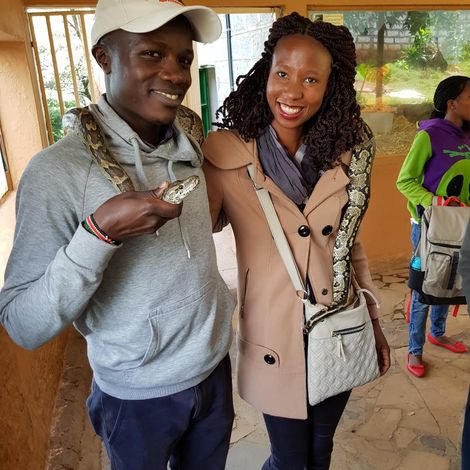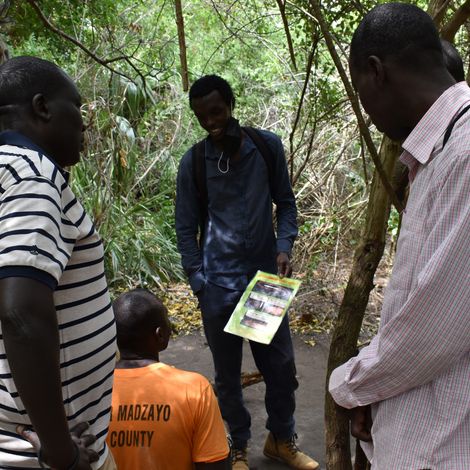Creating awareness on snakes and snake bites


Many people around the world have a negative attitude and perception toward snakes. Most African communities’ associate snakes with evil. They perceive all snakes to be dangerous thus when one sees a snake s/he is almost tempted to kill it; such encounters turn out to be fatal snakebite incidents. While snakes are dangerous to people, they are also important in the ecosystems. Most snakes feed on rodents and other small animals that are pests and sources of diseases. The unique olfactory capacity of snakes means they will be attracted to areas with many rodents like granaries and food waste dumps hence their conservation is very important for a healthy ecosystem.
In a country with poor healthcare access, the majority of snakebite victims opt for treatment from traditional healers who use unprescribed herbal treatment. This results in several deaths especially in rural areas. Admission of antivenom is the only proven effective way of treating snakebites from venomous snakes. In addition, other management options including first aid precautions have been established. This project seeks to create awareness on snakes and train selected communities on snakebite management in Funyula, Busia County, Kenya. The project will enlighten the local people on how to coexist with snakes. The community will be educated on how to identify venomous and non-venomous snakes and how to avoid snakebites. They will also be informed about the most common snakes in their locality, how to safely remove snakes found in their homes relocating them back in the wild and how to handle and help victims of snakebite. The project will further enlighten community health workers on how to identify venomous and non-venomous snakebites and measures and steps on how to handle the victims. This will be achieved by conducting community workshops to train and, as well as illustrate using posters to various target groups.